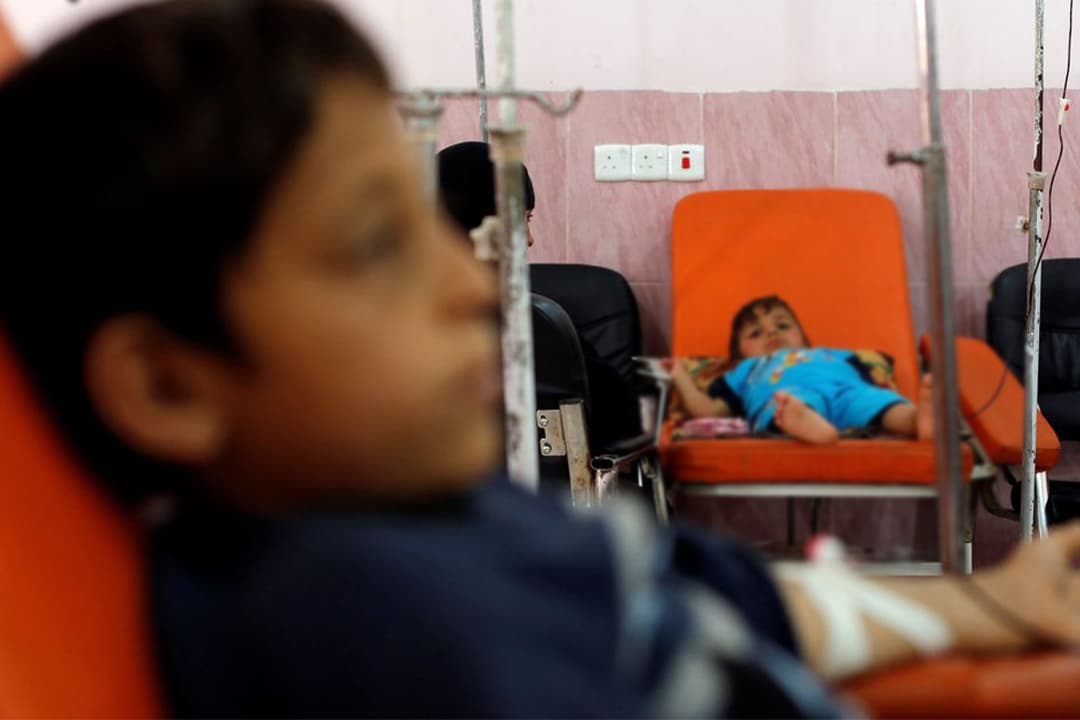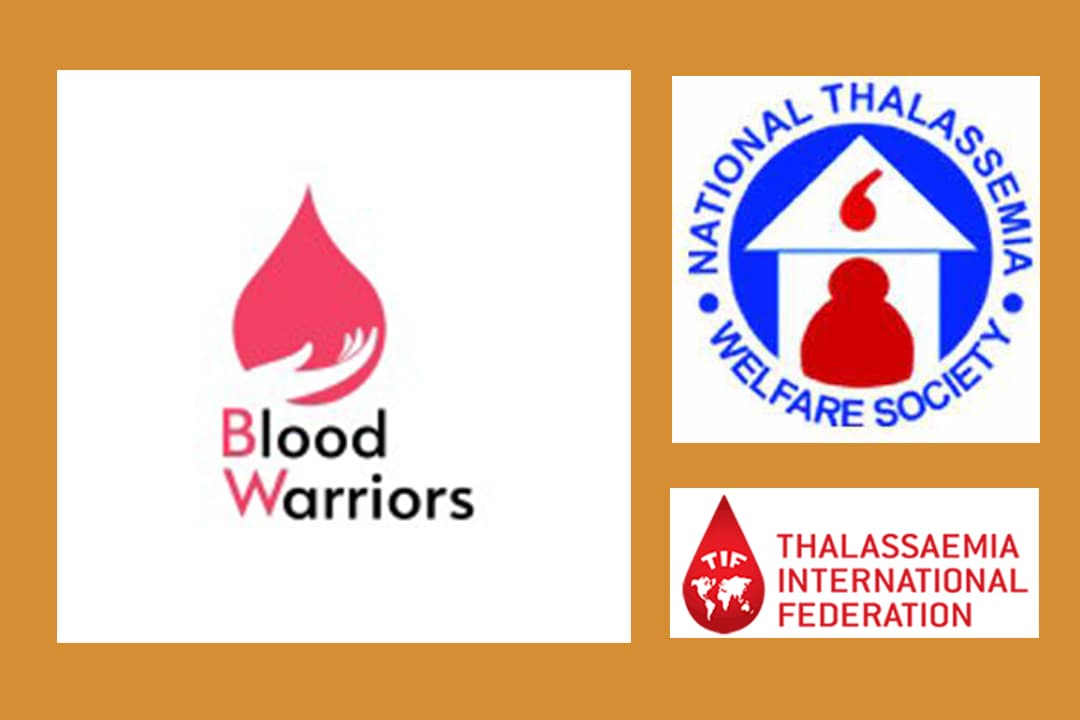Busting the Myths around Blood Donation
Blood Warriors
April 15, 2025
There are several myths about blood donation that can discourage people from donating in India. Here are a few common myths, along with the facts and references to support them:
Myth #1: Blood donation is unsafe.
Fact: Blood donation is a safe and sterile process that is regulated by the government and carried out by trained professionals. The equipment used for blood donation is sterile and disposable, and the risk of infection is extremely low. According to the World Health Organization (WHO), the risk of a donor experiencing a serious adverse reaction to blood donation is less than 1 in a million (https://www.who.int/bloodsafety/faq/en/).
Myth #2: Blood donation will make you weak or sick.
Fact: Blood donation is a safe and well-tolerated procedure that does not cause long-term health problems. While it is normal to feel a little lightheaded or dizzy after donating blood, these symptoms are usually temporary and can be managed with a snack and a drink. In fact, donating blood may even have health benefits, such as lowering the risk of heart disease and reducing blood pressure.
Myth #3: You have to be in perfect health to donate blood.
Fact: While there are some medical conditions that can disqualify you from donating blood, most healthy adults are eligible to donate. The eligibility requirements for blood donation vary depending on the country and the blood bank, but generally, if you are feeling well and meet the age and weight requirements, you can probably donate blood. If you have any concerns about your eligibility, you can contact a blood bank or visit their website for more information.
Myth #4: Only certain blood types are needed.
Fact: All blood types are needed and are valuable in different situations. For example, O-negative blood is often referred to as the "universal donor" because it can be transfused to anyone, regardless of their blood type. However, O-positive blood is the most common blood type, and it is often in high demand because it can be transfused to people with O-positive and O-negative blood types. Other blood types, such as A-negative and B-negative, are also needed in specific situations. Therefore, it is important for people of all blood types to consider donating blood. Note: The universal and cross donation in India is now limited and is done only in case of emergencies.
Myth #5: Only young, healthy people can donate blood.
Fact: While it is true that there are some age and health requirements for blood donation, most healthy adults are eligible to donate. The eligibility requirements for blood donation vary depending on the country and the blood bank, but generally, if you are feeling well and meet the age and weight requirements, you can probably donate blood. There is no upper age limit for blood donation, and many older adults continue to donate blood into their 70s, 80s, and beyond. According to the American Red Cross, as long as you are in good health and meet the other eligibility requirements, you can donate blood (https://www.redcrossblood.org/donate-blood/how-to-donate/eligibility-requirements/eligibility-criteria-frequently-asked-questions.html).
Myth #6: You can only donate blood once.
Fact: The frequency of blood donation varies depending on the country and the blood bank, but most people can donate blood every 12-16 weeks. The interval between donations is necessary to allow the body time to replenish the lost blood and maintain a healthy iron level. However, some people may be able to donate more frequently, depending on their health and other factors. It is important to consult with a healthcare provider or a blood bank before donating blood to determine the appropriate interval between donations. Note: Ideally in India, a healthy male can donate every 3 months and female can donate every 4 months.
Myth #7: You can't donate blood if you have tattoos or piercings.
Fact: While there are some restrictions on blood donation for people with tattoos or piercings, these restrictions are typically temporary. In most cases, people with tattoos or piercings are eligible to donate blood as long as the tattoo or piercing was performed by a licensed professional and the site is fully healed. According to the American Red Cross, people with tattoos or piercings are typically eligible to donate blood after 4 months if the tattoo or piercing was applied in a state that regulates tattooing or body piercing (https://www.redcrossblood.org/donate-blood/how-to-donate/eligibility-requirements/tattoos-and-piercings.html). Note: In India, a person with tattoo cannot donate until one year after the tattooed date.
Myth #8: You can't donate blood if you have a chronic health condition.
Fact: While it is true that some chronic health conditions can disqualify you from donating blood, many people with chronic health conditions are still eligible to donate. The eligibility requirements for blood donation vary depending on the condition and the severity of the condition. For example, people with diabetes or high blood pressure may be able to donate blood as long as their condition is well-controlled and they are feeling well. It is important to consult with a healthcare provider or a blood bank before donating blood to determine your eligibility.
Myth #9: You can't donate blood if you have had cancer.
Fact: The eligibility criteria for blood donation vary depending on the type of cancer and the treatment received. In general, people who have had cancer and are in remission may be eligible to donate blood after a certain period of time has passed. For example, according to the American Red Cross, people who have had breast cancer are typically eligible to donate blood after 1 year has passed since their last treatment (https://www.redcrossblood.org/donate-blood/how-to-donate/eligibility-requirements/cancer.html). It is important to consult with a healthcare provider or a blood bank before donating blood to determine your eligibility.
Myth #10: You can't donate blood if you have traveled to certain countries.
Fact: There are some travel-related restrictions on blood donation, but these restrictions are typically temporary and are in place to protect the blood supply from certain infectious diseases. For example, according to the American Red Cross, people who have traveled to certain countries may be deferred from donating blood for a certain period of time due to the risk of malaria or other infectious diseases (https://www.redcrossblood.org/donate-blood/how-to-donate/eligibility-requirements/travel.html). It is important to consult with a healthcare provider or a blood bank before donating blood to determine if you are eligible.
In conclusion, there are several myths about blood donation that can discourage people from donating in India. It is important to recognize these myths and understand the facts about blood donation in order to encourage more people to donate and help to ensure that there is a sufficient supply of blood available for those who need it. I encourage everyone to consider donating blood and making a positive impact in their community.



